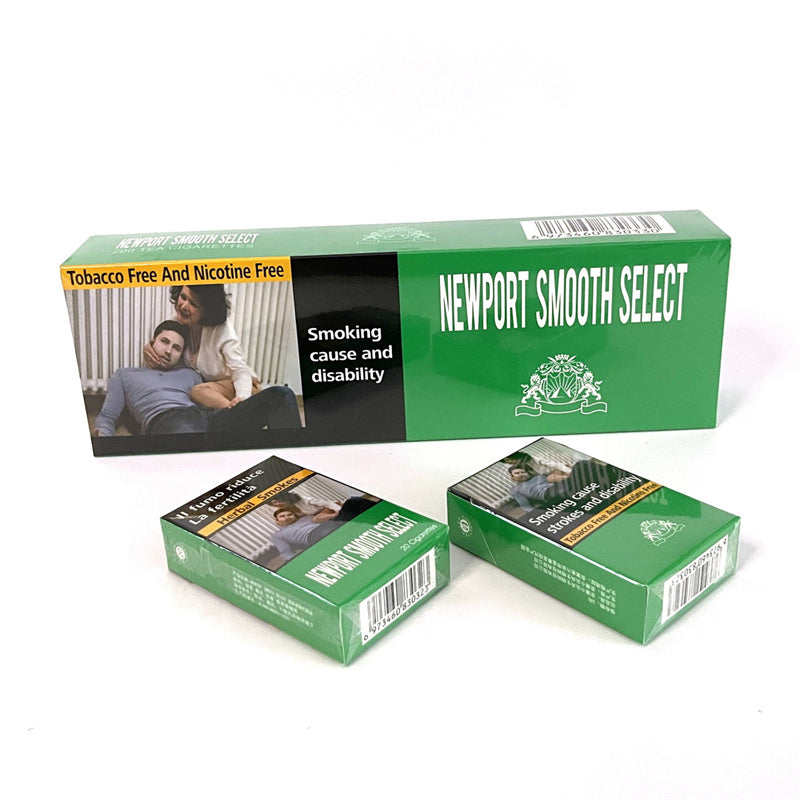When it comes to international tobacco brands, domestic consumers are familiar with a few brands, such as Philip Morris's Marlboro, British American Tobacco's Camel and Lucky Strike, Imperial Tobacco's Davidoff, and Japan Tobacco International's Mild Seven Star. .
For traditional international tobacco giants, the pattern of "a few global popular brands + a variety of regional/national popular brands" has basically been formed in terms of brand construction, and this has supported the global business framework and achieved the globalization of Philip Morris International, Giants such as British American Tobacco and Japan Tobacco International.
However, with the rapid development of new tobacco products, the above-mentioned international tobacco giants have adjusted their brand strategies and regard new tobacco products as the core of future development. Ever since, in official statements (official website, financial reports, announcements, etc.), new cigarette products occupy the C position.
Interestingly, these tobacco giants have "invariably" formulated three major product categories, namely, the three development directions of "atomization, heating, and snus", especially Philip Morris International, British American Tobacco, Altria Group and Imperial The four tobacco companies have formulated detailed new cigarette development plans and regard these new cigarette brands as the future of the company.
Atomized electronic cigarette: "British and American" VUSE leads the way, followed by NJOY
When it comes to new tobacco products, the first thing consumers think of is atomized e-cigarettes. In the past two years, cartridge-type e-cigarettes have gradually become the mainstay, also known as pod cigarettes. JUUL in the US market is one of the representative products, and once led the way. The development of this category.
However, with the policy restrictions of the US FDA, JUUL's market share has declined rapidly, and it has been gradually surpassed by British American Tobacco's VUSE and Altria Group's NJOY in the US market. In terms of expanding to the global market, Imperial Tobacco's blu brand also has a high influence. In addition, it is the overseas work of many domestic brands.
In 2013, Reynolds Tobacco released its e-cigarette brand, VUSE, a few years before JUUL. In 2017, all shares of Reynolds Tobacco were acquired by British American Tobacco. After several years of competing with JUUL in the market, VUSE has now become the number one brand in many e-cigarette markets.
It should be noted that VUSE is the first atomized e-cigarette brand (product) authorized by PMTA, and it is also the brand with the most authorizations, followed closely by the NJOY brand of Altria Group. Interestingly, both brands receive technical support from Smore International.
Heating products: "pioneered" by IQOS, glo, ploom, etc. are accelerating to catch up
In addition to atomized e-cigarettes, heat-not-burn products are another popular new cigarette category. In 2014, Philip Morris International launched IQOS in Japan and Italy, becoming the first large-scale heat-not-burn product. It quickly became popular with the concepts of "heating but not burning" and "lower harm" and was once regarded as the most popular product in the tobacco industry. "iPhone".
In the development of heating products, Reynolds Tobacco has a longer history than Philip Morris International, and also has many product patents. After being acquired by British American Tobacco, the glo launched is also highly competitive. However, the IQOS launched by Philip Morris International achieved the scale and marketization of heating products for the first time, so it is generally regarded as a "pioneer". As of the third quarter of 2023, the total number of IQOS users is approximately 27.4 million, and sales of heated cigarettes have reached 32.5 billion, making it the number one brand in the heat-not-burn market.
Due to the popularity of the Japanese and Korean markets, ploom launched by Japan Tobacco International has also occupied a large market share, and together with glo, it has posed a considerable challenge to IQOS.
Snus: From a niche product in Northern Europe to a broad stage
Snus originated in Europe and was only heavily promoted in Sweden for various reasons. In 2017, Swedish Match launched ZYN, a modern snus that does not contain tobacco, and the market quickly became popular. According to statistics, snus sales in the United States have increased 300 times in five years.
In 2022, Philip Morris International acquired nicotine bag manufacturer Swedish Match for US$16 billion. The core reason was that it saw the growth potential of Swedish Match snus brand ZYN. Data shows that in the third quarter of 2023, ZYN’s sales in the US market were 105.4 million cans, with its share increasing to 70.8%, and its total global sales exceeded 200 million cans.
After Philip Morris International, British American Tobacco also began to develop snus, launching the Velo brand (formerly known as Lyft) to compete with brands such as ZYN. The financial report shows that as of June 2023, Velo's market share in the top five markets (the United States, Sweden, etc.) reached 28.4%, and it achieved revenue of 241 million pounds.
By developing new categories such as "atomization, heating, and snus", international tobacco giants seem to have found a new path for the transformation of traditional tobacco, hoping to use the three major new cigarette categories to complete the transformation of traditional cigarettes. Of course, as to whether these three major categories are "destined" or "wishful thinking", we might as well "let the bullets fly for a while."
